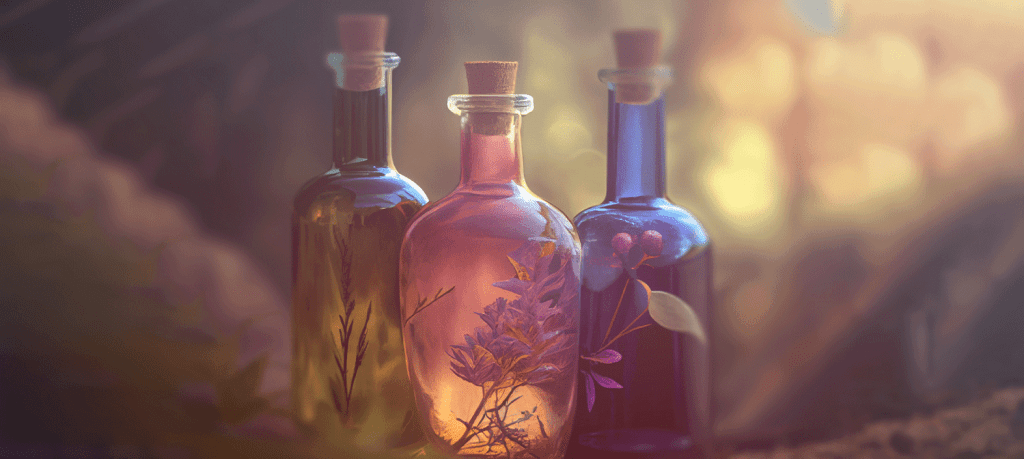
Aromatherapy: A Guide
Aromatherapy is a holistic healing treatment that uses natural plant extracts to promote health and well-being. It has been used for centuries to treat a wide range of physical and emotional conditions, and is gaining increasing recognition as a complementary and alternative medicine (CAM) practice.
Let’s delve into the history of aromatherapy, explore the many uses and benefits of this ancient therapy, and discuss some important cautions to keep in mind when using essential oils.
History of Aromatherapy
The use of aromatic plants and essential oils for therapeutic purposes dates back to ancient civilizations. The Egyptians, for example, used essential oils extensively in their medical practices, and many of the remedies and perfumes used in Egyptian society contained plant extracts.
The Greeks also had a strong tradition of using plant extracts for medicinal purposes, and the famous physician Hippocrates wrote extensively about the use of aromatic plants to treat various ailments.
Aromatherapy as we know it today, however, has its roots in the work of a French chemist named Rene-Maurice Gattefosse. In the 1920s, Gattefosse accidentally burned his hand in his laboratory and plunged it into a vat of lavender oil to soothe the burn. He was amazed by the speed with which the burn healed and the absence of scarring, and this incident sparked his interest in the therapeutic properties of essential oils.
Gattefosse went on to conduct extensive research on the use of essential oils for a variety of medical conditions, and his work laid the foundations for the modern practice of aromatherapy.
Uses and Benefits of Aromatherapy
Aromatherapy can be used in a number of ways, including inhalation and topical application. The most common method of using essential oils is through inhalation, either by using a diffuser to disperse the oils into the air or by inhaling the oils directly from the bottle.
Topical application of essential oils is another common method of using aromatherapy. Essential oils can be applied directly to the skin or added to creams, lotions, and other carrier products for a more controlled application.
There are numerous essential oils that are commonly used in aromatherapy, each with its own unique properties and benefits. Some of the most popular essential oils and their uses include:
Lavender: known for its calming and relaxing properties, lavender oil is often used to promote sleep and reduce stress and anxiety.
Peppermint: has a refreshing, invigorating scent and is often used to help with digestion and relieve nausea.
Tea tree: has antibacterial and antiviral properties and is often used to treat skin conditions such as acne and fungal infections.
Eucalyptus: has a refreshing, menthol-like scent and is often used to help with respiratory issues such as colds and sinus infections.
The benefits of aromatherapy are wide-ranging and varied, and include:
Relief of stress, anxiety, and depression
Improved sleep
Improved digestion
Relief of headaches and migraines
Enhanced mental clarity and focus
Improved skin health
Boosted immune system function
Cautions and Considerations
While essential oils are generally safe and well-tolerated, it is important to keep in mind that they are highly concentrated plant extracts and can be toxic if used improperly. Here are some important cautions and considerations to keep in mind when using essential oils:
Dilute essential oils properly: Essential oils should always be diluted with a carrier oil, such as sweet almond oil or coconut oil, before applying them to the skin. This is especially important for sensitive skin and for children, as undiluted essential oils can cause irritation.
Do not ingest essential oils: While some essential oils are safe to consume in small amounts, it is generally not recommended to ingest essential oils. Ingesting essential oils can be toxic and can cause serious side effects.
Keep essential oils out of reach of children and pets: Essential oils should be stored in a safe place, out of reach of children and pets, as they can be toxic if ingested.
Be aware of potential allergies: As with any product, it is important to be aware of potential allergies when using essential oils. If you are allergic to a particular plant, you may also be allergic to the essential oil derived from that plant.
Do not use essential oils on open wounds: Essential oils should not be used on open wounds or on broken skin, as they can cause irritation and delay the healing process.
Use caution with certain essential oils: Some essential oils, such as cinnamon, clove, and oregano, are considered “hot” oils and can cause irritation or even burn the skin if used improperly. These oils should always be diluted before use.
Overall, aromatherapy is a safe and effective way to promote health and well-being. By using essential oils responsibly and with caution, you can experience the many benefits of this ancient healing therapy.
Further Research:
As an Amazon Associate I earn from qualifying purchases. This means if you choose to buy through my links, I may receive a small commission at no extra cost to you. I only recommend tools and treasures that align with the spirit of The Energy Reset.
